Inside the bitter battle for $500k buried fortune
Two tradies, a developer and a restaurateur are set to face their day of reckoning over a $500,000 cash stash found buried on the Gold Coast. Here’s the inside story.
QWeekend
Don't miss out on the headlines from QWeekend. Followed categories will be added to My News.
One of the most famous parcels of land on the Gold Coast was advertised for sale with little fanfare in recent months.
“Four rare waterfront blocks in the heart of Runaway Bay,” the listing on realestate.com.au read.
No mention of the nearly $500,000 “buried treasure” found on the site. No suggestions to bring a shovel, or perhaps a lawyer.
Agent Adam Hope, of LJ Hooker Hope Island, says he briefly considered the tale as a marketing hook, but decided a straight bat would be prudent given the ongoing legal battle to claim the mysterious cash. Besides, the site’s history hardly needed advertising.
“It’s been one of the biggest stories on the Gold Coast for the past six months,” he says. “Everyone that’s inquired about the blocks has had a bit of a joke about it saying, ‘It’ll be fun getting in there with a shovel and seeing if we find any more money’.”
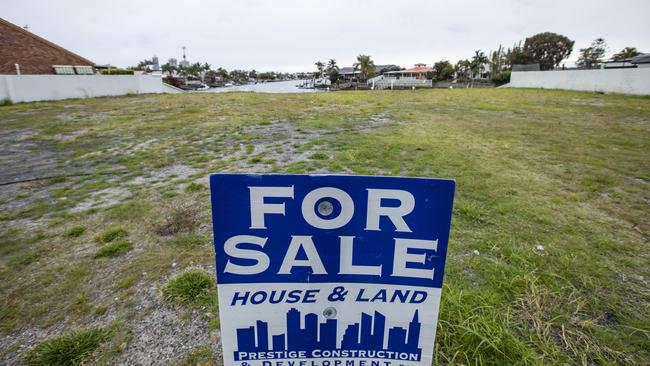
Two of the four blocks were snapped up fast. But Lot 1 and Lot 4 – the block where the cash was famously unearthed – remain on the market.
Hope has history with the site, handling the original sale of a four-bedroom home with swimming pool and tennis court at 50 Lae Drive to Morrison Construction Services for $1.7 million in July, 2019. The plan was to demolish and subdivide.
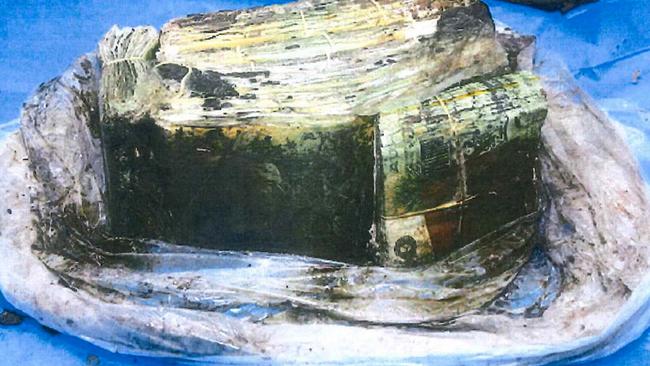
Little did anyone know, it came with a hidden bonus – about half a metre underground, near the swimming pool at the front of the house, were four plastic food storage tubs packed with $20, $50 and $100 notes, totalling $476,600.
They would be unearthed during the demo process, triggering a rush of claims from people who thought they might be entitled to the cash, including the tradies who found it, their boss, the owner of the land, a prominent Chinese restaurateur with links to a previous owner, and a man who simply says, “I’m pretty sure I left some money there”.
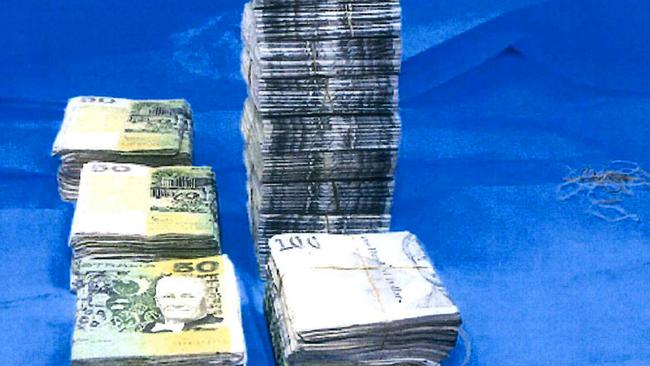
TRADIES SACKED AFTER UNEARTHING $476K
More than nine months and a pandemic later, the discovery hasn’t brought anyone much joy: The tradies claim they were sacked for not handing the cash to their boss; their boss has copped a hammering on social media although he denies sacking them; some painful family memories have been rehashed; and a lot of cash has been spent on lawyers in a bid to claim the mysterious booty.
Meanwhile, the money sits in a Queensland Police Service bank account.
And the ATO is watching and waiting.
On Monday, the case is scheduled to go to mediation, with commentators saying an agreement to split the cash between the four main claimants may be the best way to avoid an expensive trial where most risk walking away with nothing but a hefty legal bill.
The whole saga has some asking, could it actually be more trouble than it’s worth to find half a million dollars?
It was late afternoon on Thursday, October 31 last year when Warren Bruggy and Daniel Boyd arrived at the Runaway Bay Police Station on the Gold Coast with, quite literally, a dirty great pile of cash.
They had just pulled it from the ground at a demolition site 50m down the road.
The pair told shocked officers they found the cash about 2.30pm, while clearing a nearby development site after the removal of a pool.
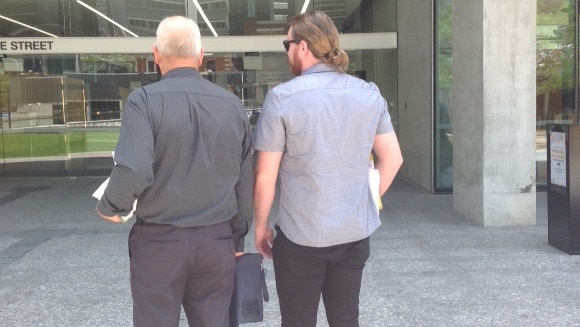
Bruggy, an excavator operator with D.I.G. Earthworks, was gouging out tree roots about half a metre deep in the pool surrounds when he hit something solid. An odd-looking black garbage bag caught on the digger’s bucket, then rolled onto the ground.
“I opened the black plastic bag and inside was a plastic bread Tupperware container that was smashed open by the excavator,” he told police.
Inside the 30cm-long tub was a huge amount of neatly bundled cash, wrapped in pages from a Chinese newspaper. It was old-style paper money – $20, $50 and $100 notes, phased out by the mid-90s.
Despite being out of circulation, they remain legal tender and could have been deposited or exchanged for polymer notes at a bank.
But after a brief discussion about the surreal situation, Bruggy and Boyd marched the money across the road to police. They wanted to do the right thing, but were also a little uneasy.
“It could have been stolen, (there) could have been other circumstances to it,” Bruggy said in a Supreme Court hearing earlier this year.
Officer-in-charge at Runaway Bay, Acting Senior Sergeant Brian Cazzulino shared the tradies’ view – it’s not often there’s an innocent explanation for such a find.
He called in Gold Coast CIB.
While waiting for detectives to arrive from Southport, Cazzulino ran serial numbers from the notes through the police database.
Nothing.
He searched the address – 50 Lae Drive – for any links to criminal activity. Again, nada.
At 4pm, two detectives arrived at the Runaway Bay Station and one, Senior Constable Stuart McLean, wandered across to the development site to look at where the money was found. There, among the dirt and quartz pebbles of a former garden bed, he spotted another plastic tub – identical to the one back at the station – lying on the ground, unnoticed.
Incredibly, it too was crammed with money, although this box was badly water damaged.
Wondering just how much cash was underfoot, McLean called in an Australian Federal Police cash detection dog.
The black labrador indicated an area of interest close to the original find, but officers poked around and found nothing.
With light fading, they called it a day and arranged for Bruggy and Boyd to meet officers back onsite the next morning to excavate the suspect area.
Little did they know, as they left the vacant lot that night, there was still around a quarter of a million dollars sitting in the ground.
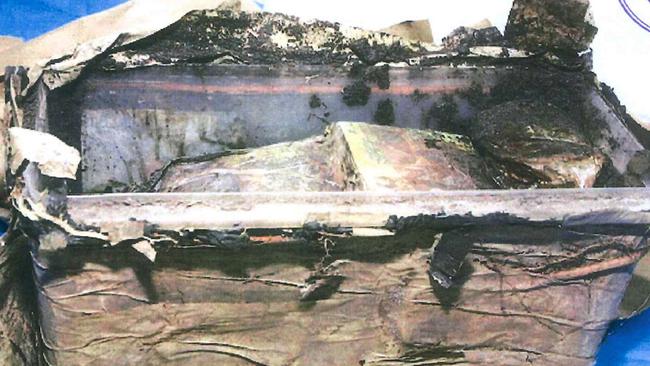
At 8am on Friday, November 1, the dig began again and within half an hour the excavator had unearthed two more tubs of cash about 60cm down.
With police on site two days in a row, word was beginning to spread of the extraordinary find. The second haul of cash had only been out of the ground a matter of minutes when fallout over who would lay claim to the fortune began.
Bruggy was with police when his phone rang. It was his boss, furious he’d been left out of the loop.
“I got fired because we didn’t hand the money over to our employers, so they fired us on the spot for it,” Bruggy told Brisbane’s Supreme Court in January.
However D.I.G. Earthworks co-director Shane Grimwood says he didn’t sack Bruggy and Boyd that day, but approached police because his workers failed to let him know what had happened on site.
“They were just casual employees on a day-to-day basis and I didn’t sack them. I didn’t even really have any dealings with them. My business partner was more having dealings with them. I only got roped into it because when I found out I went to the police station to find out what was going on.”
The fun and games were only just beginning.
Within a month, seven people had contacted police about laying claim to the cash, the most random being David Timson, whose vague statements that the money, “looked a little bit familiar”, had many in and outside court scratching their heads.
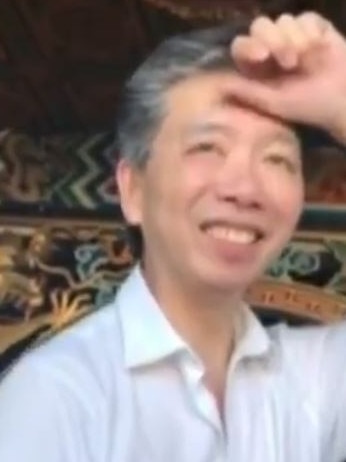
The only claimant who tried to explain the origin of the cash was Chinese restaurateur Raymond Ma, who said his estranged late father Steven buried it in the 90s.
In December, landowner Morrison Construction Services initiated action in Queensland’s Supreme Court to claim the money and the spat became public.
Grimwood found himself cast as almost a pantomime baddie when it was revealed Morrison’s affidavit alleged Grimwood phoned him early on November 1 and said he “couldn’t believe his guys had handed the money in” and he was headed to the site “to fire them straight away”.
According to Morrison, Grimwood later suggested they ditch the lawyers, split the cash “and we could both be on a yacht eating oysters and drinking champagne”.
“I didn’t say that; not the champagne and oysters,” says Grimwood, who claims someone else on site made the comment.
“Anyone who knows me knows I wouldn’t say that – maybe a beer and a barbecue.”
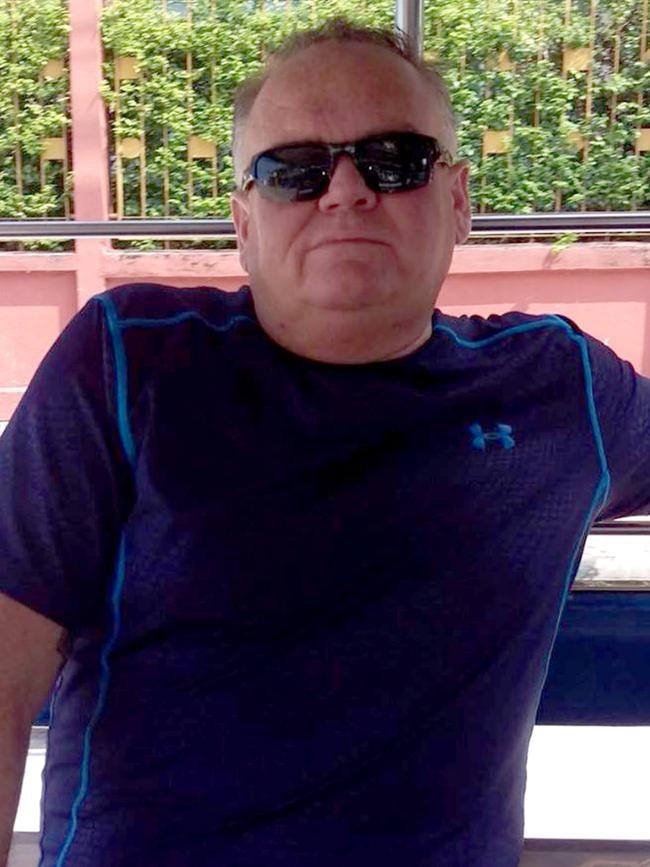
Grimwood is annoyed that, as an employer responsible for the work site and owner of the excavator, his staff failed to inform him of a major development. He only found out when someone texted to ask why police were on site on Friday.
Grimwood’s business partner Michael Douglas was accused of firing Bruggy and Boyd that day but he says, “I never said that to them. While that was all going on we just told them to go home.”
After Ma came forward, Grimwood withdrew D.I.G.’s claim, and says simply, “It wasn’t my money and it wasn’t theirs (Bruggy and Boyd’s).” He wishes Ma well.
As legal action has progressed, others too have fallen by the wayside, leaving a three-way tug-of-war between Ma, developer Morrison, and finders Bruggy and Boyd.
Runaway Bay resident Gina Christeson lives around the corner from the site. When she heard why police and media had descended last year, she was surprised, but not entirely shocked, joking she may hire an excavator and have a look in her own back yard.
“We realise how often it happens,” she says, “because my father-in-law buried silver ingots and forgot where he put them.”
Her husband’s family tried everything to locate the hidden treasure, but the patriarch was a keen gardener who lived on a large block.
“Nothing worked and he couldn’t remember, but hey – looks like he’s not the only one,” she laughs.
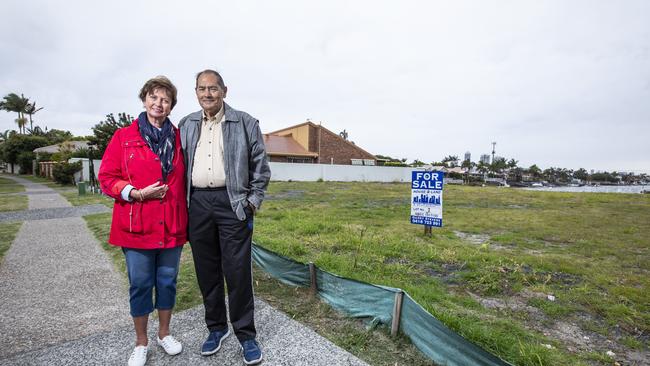
It would appear not.
According to the Reserve Bank, there’s upwards of $86 billion in cash in circulation around Australia right now – and climbing. That’s around $3400 per person, or nearly $8800 per household.
But do you have much in your wallet? Chances are you’ve barely used cash since the pandemic hit.
Although some is obviously in the hands of crime gangs, a significant amount is thought to be in attics, under mattresses, in suitcases or even garden beds.
And even more may have been stashed during a mini run on banks in March this year.
The Reserve Bank’s Financial Stability report for April details a notable number of large over-the-counter cash withdrawals – “more than $100,000 and in some cases into the millions” – in March.
Christeson, for one, believes the situation is more common than we realise, with many finds going unreported.
But what exactly are your responsibilities if you do stumble across a haul of cash?
We all have a legal duty to at least attempt to find the owner, according to property law expert Tim O’Dwyer, speaking generally.
“Very rarely do finders become legal keepers because usually there’s an anxious owner wanting their lost valuables back,” says O’Dwyer, who reveals his father-in-law hid cash in his attic before his death.
In practice, however, people rarely know when a finder simply pockets their discovery. “But you might find yourself in deeper trouble, the higher the value of what you find and don’t hand in.”
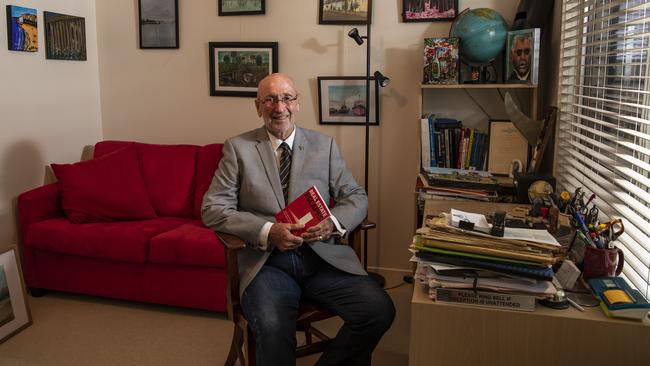
In 2010 a Melbourne couple was charged with “theft by finding” after not handing in $100,000 they found in the lining of a second-hand suitcase purchased from a suburban Salvation Army shop.
It had been donated by a woman who didn’t realise her husband had been stashing cash in the old case.
When she realised her awful mistake, she dashed to the store and the buyer was able to be traced via an EFTPOS receipt.
The customers had been slowly depositing the money into their bank accounts and were surprised to be found and charged with theft for what they considered good fortune.
“However, if people do hand in lost property and a true owner can’t be found, disputes frequently occur between honest finders, their employers and the owners of premises where something is found.”
Typically, the “true owner” has the best claim when it comes to lost property.
But proving it is another thing.
In this case only Raymond Ma is pressing this claim, as heir to his late father’s estate.
Ma is well-known on the Gold Coast, having run the iconic Mandarin Court yum cha restaurant at Mermaid Beach for the past 30 years, taking over the long-running family business from his uncle, Peter Chan.
Chan owned the property where the money was found from 1989 until 2007 and told police on November 3, just two days after the money was found, that he believed the cash could have been buried by his brother-in-law Steven Ma, Raymond’s estranged father.
Chan said Steven Ma had amassed a small fortune working as an itinerant chef through the 80s and 90s, and didn’t want to deposit the money in a bank or pay tax on his earnings.
He said Ma lived at the Runaway Bay address for about six months in 1993 and, during that time, showed him a package of cash similar to the ones found, asking Chan to store it for him.
Chan refused and thought no more of the incident until police contacted him. Steven Ma died intestate in 2015 and Raymond is his only child.
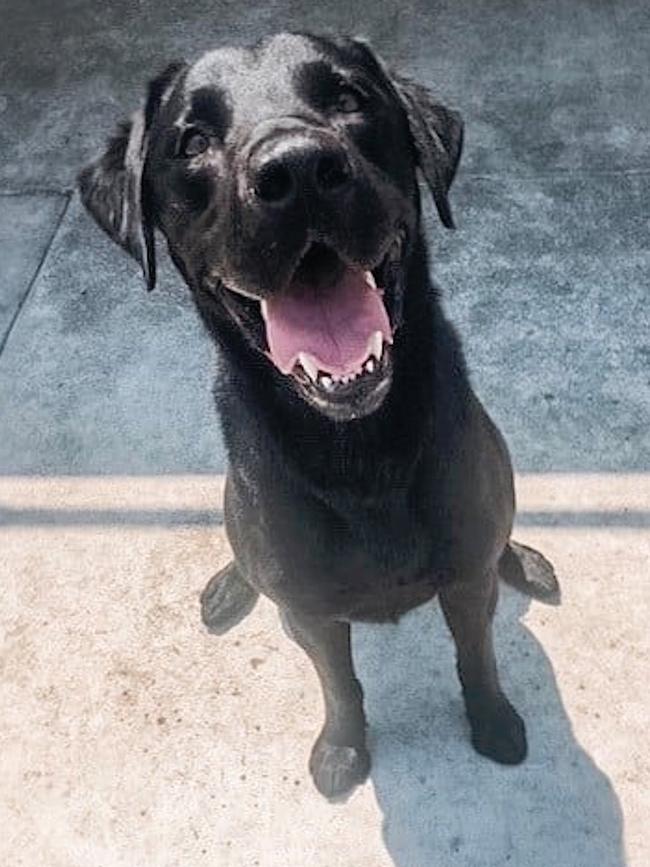
In an affidavit to court, Raymond, who is claiming the cash on behalf of his father’s estate, says he was raised by his paternal grandparents and never really knew his father.
“I cannot recall ever having a decent conversation with him.”
He paints his father as a paranoid character.
“He thought people were following and watching him and he told me to be careful about people following me as well.”
The fact the money was found bundled in Chinese newspaper would seem to lend weight to Ma’s claim, although some have questioned how Steven Ma could have earned such a vast fortune working as a chef, or why, over more than two decades, he never returned to the property to retrieve the money nor, seemingly, told anyone he buried the cash.
If Steven Ma was responsible for burying the cash, the property was owned by another family for 12 years – from 2007-2019 – who were unaware there was half a million dollars buried next to their swimming pool.
Joining Ma at the mediation table will be finders Bruggy and Boyd who have argued that if no one can prove rightful ownership of the cash, they should be next in line under “finders keepers” principles.
Bruggy and Boyd’s legal team have cited a 1982 British case, Parker v British Airways Board, that upheld the rights of a finder over a property owner.
The court ruled a passenger who found a gold bracelet on the floor of an executive lounge at Heathrow Airport had greater claim to it than the owners of the land, essentially because members of the public were able to come and go in the area where it was found.
However, “finders keepers” judgments can turn on both access to the discovery site and whether the found item was on the land or in the land.
If it’s considered “embedded”, the owner of the land generally has superior rights under law – even if they don’t know the item is there.
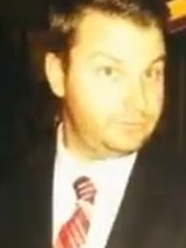
For his part, developer Scott Morrison has argued that as owner of the property, he owns everything on it and in it.
And even if Steven Ma buried the cash – which he has not conceded – Ma effectively abandoned it.
Despina Priala, solicitor for Morrison, and a property lawyer with more than 25 years’ experience, says she has never handled a case quite like this and vividly remembers receiving a call from her client, when he first heard about the cash.
“I was as shocked as he was,” she says.
Having just wrapped up the relatively straightforward conveyancing on the purchase of the site, Priala was thrown into a new task that was anything but straightforward.
The circumstances of this case seem so outlandish, it’s hard to believe there’s an uncannily similar situation on record in NSW – right down to the cash being wrapped in paper that points to a previous owner.
In 1965, builders hired to excavate under a newly-purchased house at Dover Heights in Sydney unearthed a biscuit tin containing £8500 (about $50,000 in today’s money).
They handed it to police; it was all over the news and a court battle ensued involving the finder, his employer, the homeowner and the previous owner.
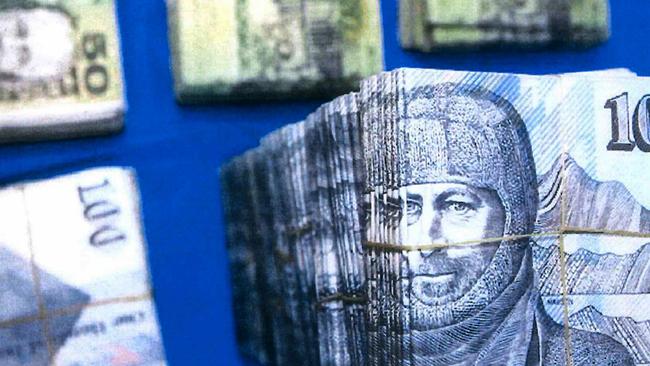
In that case, (Ranger v Griffin), the money was wrapped in brown paper marked “K. Ranger”. The property’s previous owner, Alma Ranger, said she won the money on a horse in 1945 and had buried it to hide it from her bookie husband.
However, she failed to explain to the judge’s satisfaction why she left it in the ground and he dismissed her claim to be the true owner.
The judge also ruled out the labourer who found the cash and his boss, saying they were on the land only to perform a specific task.
And while that task included removal of debris “a tin containing £8500 can scarcely be regarded as debris”.
The property owners at the time of the find ended up pocketing the surprise windfall.
Priala is hopeful Monday’s mediation will be “inquisitorial, rather than adversarial”.
“If the matter is not resolved at mediation, it will be set for a trial … the outcome of which will certainly create history,” she says.
The case is so intriguing, the prospect of it going to judgment has legal scholars reaching for the popcorn. But commentator Tim O’Dwyer says going to trial is generally a risky winner-takes-all strategy.
“Someone will probably get all of it … and the person who loses is likely to have to pay the other side’s costs,” O’Dwyer says.
“That’s the big inducement to get it sorted out through mediation. Everyone wears their own costs and takes a bit of the loot and gets on with their lives.” ■

This article is supported by the Judith Neilson Institute for Journalism and Ideas

